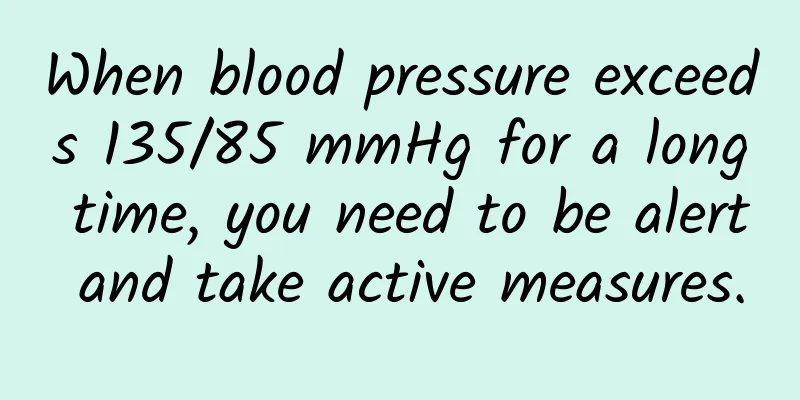When blood pressure exceeds 135/85 mmHg for a long time, you need to be alert and take active measures.

|
In cold weather, blood pressure often soars out of control, which is a serious threat to health. In a low-temperature environment, the body's peripheral blood vessels will automatically contract, just like water pipes become thinner when exposed to cold, which significantly increases the resistance to blood flow, leading to higher blood pressure. In cold seasons, people tend to eat high-calorie, high-fat foods, but their exercise volume is greatly reduced. This imbalance can easily increase the burden on the heart, which in turn drives up blood pressure. Residents aged 18 and above who measure their blood pressure at home for a long time above 135/85 mmHg should be alert and take active precautions. First, blood pressure monitoring should be strengthened, and blood pressure should be measured once in the morning and evening and recorded. Ensure 7 to 9 hours of sleep every night. Avoid staying up late and maintain a calm and optimistic attitude. Residents of any age group who have high blood pressure above 180/110 mmHg and experience severe headaches, vomiting, palpitations, blurred vision and other symptoms will face serious threats to their lives. At this time, sit or lie down quietly. Avoid activities. If you have antihypertensive drugs, take them first. At the same time, call the emergency number and go to the hospital for emergency treatment immediately. In the cold air, in order to prevent a surge in blood pressure, keep warm when going out. You can wrap a scarf around your neck, and wear thick socks and shoes with good thermal insulation performance. The elderly can wear a hat with strong thermal insulation, the thickness of which should be appropriate to effectively block the cold wind to reduce the stimulation of cold. In terms of diet, a low-salt diet should be adopted, and the salt intake per day should be controlled to the amount of a beer cap. Increase the intake of fresh vegetables to ensure balanced nutrition. In terms of exercise, it is more appropriate for healthy adults to exercise for 150 minutes per week, such as brisk walking, jogging, Tai Chi, indoor swimming and other sports, and each exercise time should be controlled within 30 minutes to 60 minutes. You can choose to exercise between 10 am and 4 pm every day, and avoid going out for exercise in the cold early morning. For those with poor blood pressure control or the elderly aged 65 to 79, it is appropriate to adjust the intensity and time of exercise according to their own situation, so as not to feel tired. □ Zhu Xiuruo, deputy chief nurse of the Department of Cardiovascular Medicine, Wenzhou People's Hospital |
>>: Beware of the "odor bomb" on the table! Use chemical knowledge to "decode" dishes
Recommend
What should I do if I have cervicitis?
Nowadays, many women are troubled by the question...
How many months of pregnancy is it better to drink milk powder for pregnant women
Pregnant women pay special attention to nutrition...
The more nervous you are, the easier it is to mess things up. It is the stress that "activates" your brain!
Produced by: Science Popularization China Produce...
What is the nutritional value of yuba? How to soak yuba
Yuba is a high-end soy product. With its high nut...
Acupuncture treatment of premature ovarian failure
There are many ways to treat premature ovarian fa...
Premature ovarian failure makes girls older! Are your ovaries still young?
Content from : Gu Zhuowei Shanghai Renji Hospital...
After two miscarriages, the cause was found and I finally got pregnant
Prospective parents who are preparing for pregnan...
Will women with irregular menstruation still ovulate?
Nowadays, the pressure of life and work is relati...
Can dietary modification improve hyperlipidemia and atherosclerosis?
Author: Cui Yihui, registered dietitian, master o...
Why are the leaves of the copper coin grass dry? What should I do if the leaves of the copper coin grass are burnt?
The copper coin grass is very common in life. Bec...
Foods that repair the uterus, five types of food help women repair the uterus!
The uterus is an important part of the female bod...
Can I get pregnant if I bleed during intercourse after ovulation?
Nowadays, many women face more or less gynecologi...
What to eat to replenish blood and qi after abortion?
Women are relatively weak after an abortion. Due ...
Beware! Umbilical hernia is more common in middle-aged and elderly women. Understanding the causes and prevention is the key
Author: Yuan Xin, attending physician at Beijing ...
How many calories are there in home-cooked fish-flavored pork shreds? What are the nutritional ingredients of fish-flavored pork shreds?
Fish-flavored pork shreds in Sichuan cuisine are ...









